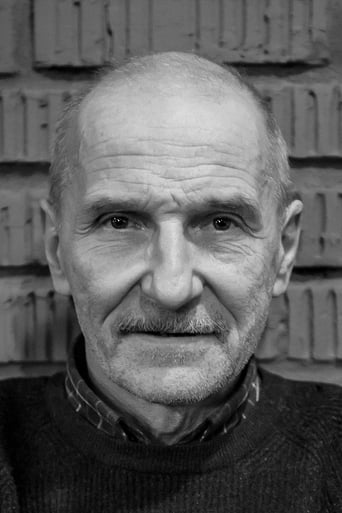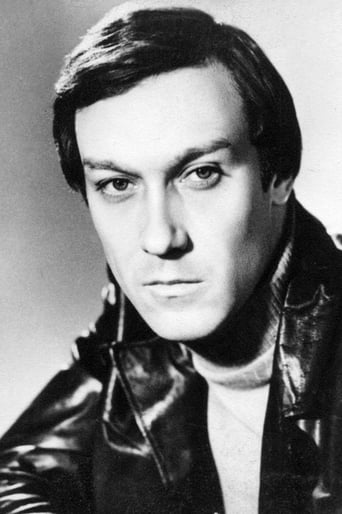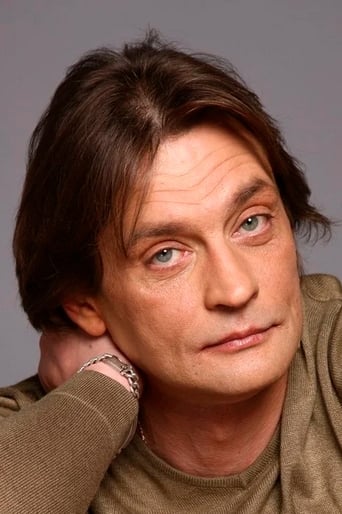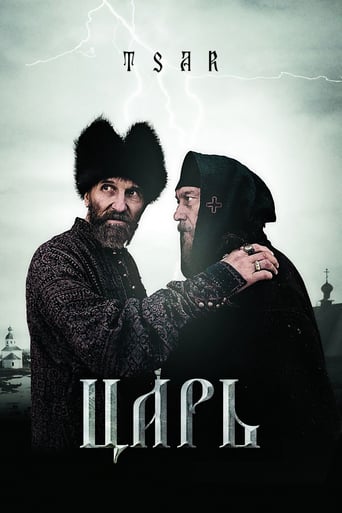
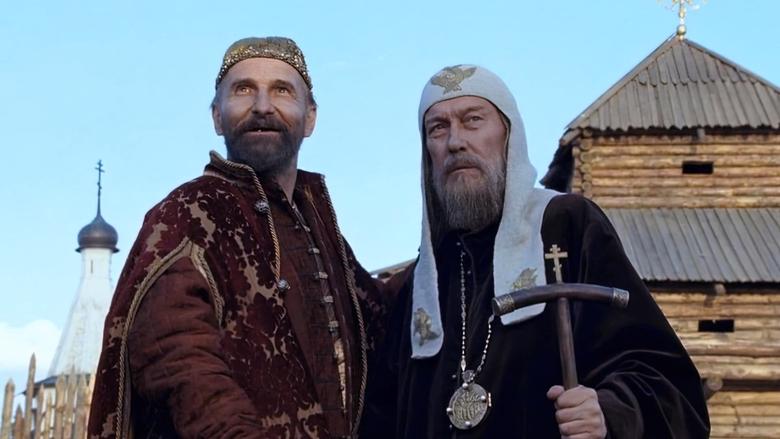
Tsar (2009)
In 16th-century Russia in the grip of chaos, Ivan the Terrible strongly believes he is vested with a holy mission. Believing he can understand and interpret the signs, he sees the Last Judgment approaching. He establishes absolute power, cruelly destroying anyone who gets in his way. During this reign of terror, Philip, the superior of the monastery on the Solovetsky Islands, a great scholar and Ivan's close friend, dares to oppose the sovereign's mystical tyranny. What follows is a clash between two completely opposite visions of the world, smashing morality and justice, God and men. A grand-scale film with excellent leading roles by Mamonov and Yankovsky. An allegory of Stalinist Russia
Watch Trailer
Cast


Reviews
more than a film. it is a form of visual essay about power and religion, about solitude and about the roots, laws and vision of tyranny. it is a fight against Russia's history. a parable. portrait not of Ivan Vasilievich but for a manner, an usual manner of East to use the authority with high force and profound fear. Pyotr Mamonov gives a strange, cold, unpredictable, vulnerable Ivan. a Tsar looking for himself, lost in good intentions and noble projects. but, maybe, the hero is Philip. the voice of Church and good sense. the voice of conscience in a dark circle of confusion. the Metropolit is a splendid role. the last for great Oleg Ynkovsky and that status impose a special status to it. more than a film. maybe, useful subject for reflection. about power. in our time. in each period of history.
What can I say but that Eisenstein would be honored to see what this movie represents.In fact, and in my own personal view, if Eisenstein were alive these days, he would probably have filmed this movie the same way.The light and shadow play, evident homage to Sergei Eisenstein, the tenuous colors, always kept at very low intensity, not to make it to vivid or bright, but clearly reminiscent of the only color palette included in the Ballroom scene in "Ivan the Terrible", add all the glory and respect to the lineage of its two predecessors.I would even go further. This can be considered the third chapter, or the third installment to "The Boyar's Plot" and "Ivan the Terrible" by Eisenstein, concluding thus the intended trilogy.The actors are all excellent, particularly the two principal figures, Pyotr Mamonov as Ivan (whose looks strikingly resemble his predecessor, Nikolai Cherkasov), and as Philipp, the Orthodox Metropolitanate, Oleg Yankovskiy. One can guess that most of the cast comes from a true and solid theatrical background, but their theatrical skills are well put into use in this masterpiece of a movie.The director, Pavel Semyonovich Lungin, is a worthy follower in the enormous footsteps of his legendary predecessor, Sergei Eisentein. His style and his technique are immaculate and show a sense of artistry uncommon these days.I can only say a loud Bravo, to everyone involved with this movie, since they have given us the ideal ending to "Ivan the Terrible" and in such a way, as not to disrupt the continuity of the trilogy.In the words of Pavel Lungin, it is a warning to the ever changing world we know today, not to relapse into the same mistakes of absolutism of the past, but work toward a more tolerant future.I salute you, Pavel Semyonovich, and hope you will direct some more movies like these.
Who was Ivan the Terrible? Was he really as terrible as the name suggests or it this mostly myth and bad PR? Pawel Lungin seems to agree with the previous and paints a terrifying portrait of his persona with the ultimate counterpoint in Metropolitanate Philipp, the religious overseer of Moscow and the Church. In this tale of madness, torture and dementia the innocent will perish, but will stick with their ideals, while the cruel remain with only eternal damnation that awaits them...Both main actors Pyotr Mamonov (Ivan) and Oleg Yankovskiy (Philipp) are a real tour de force. They are absolutely unbelievably good in the parts they play and especially Mamonov gives possibly the best performance I have seen in years. And yet with some much going for the movie in the actor department I felt massively under-awed by the direction of this movie.The story never really flows or builds and essentially history passes this movie by. This would be acceptable if the focus on the two protagonists was well handled and showed a consistent cause and effect. However we never really get to feel what is happening in Russia and how that is affecting the Tsar. In the end most is left to imagination or historical knowledge, as the movie merely suggests several key moments in time, but all this happens off screen. The background - so necessary for clarity - is hardly mentioned or is passed totally. In the end you never really understand the changes in Ivan and the engulfing madness. Additionally his actions and words are incoherent and show either bad script-doctoring or an inability to convey the character as being inconsistent in his madness. Within several minutes you see Ivan turn from a god-fearing fanatic claiming all his deeds are in the name of God and for his glory into someone claiming that ruling a country takes place outside of God. No credible build-up was really given to such a sudden change of views.All in all the madness is inconsistent and after watching the movie I feel like I know less about Ivan than before watching it. Also the overly religious motifs, which plague the movie really irked me in the wrong places.
A fine historical drama in a great Shakespearian tradition. There may be historical inaccuracies, and there may be miraculous occurrences that would clearly be impossible in real life. But that is beside the point. We don't chide Shakespeare for being historically inaccurate or for events taking an unlikely turn. What matters is the insight he gives us in the human condition with all its failings. Ivan is the classical image of a dictator that is sucked down in a negative spiral of his own making. The people who speak up against him are violently dealt with. The flatterers and opportunists who play along with him cause him to be more and more detached from reality, and more and more lonely. The parallel with Stalin is obvious, but somehow the greater distance in time makes the message more abstract and therefore more powerful.The metropolitan is slow to grasp the depth to which his childhood friend has sunk, but when he does the way in which he stands up to Ivan in word and deed is both moving and inspiring. Since this is a movie and not a stage play, the effectiveness of the storytelling is helped more by beautiful cinematography and evocative music than by profound dialog. In the end I found it inspiring and disturbing at the same time.


